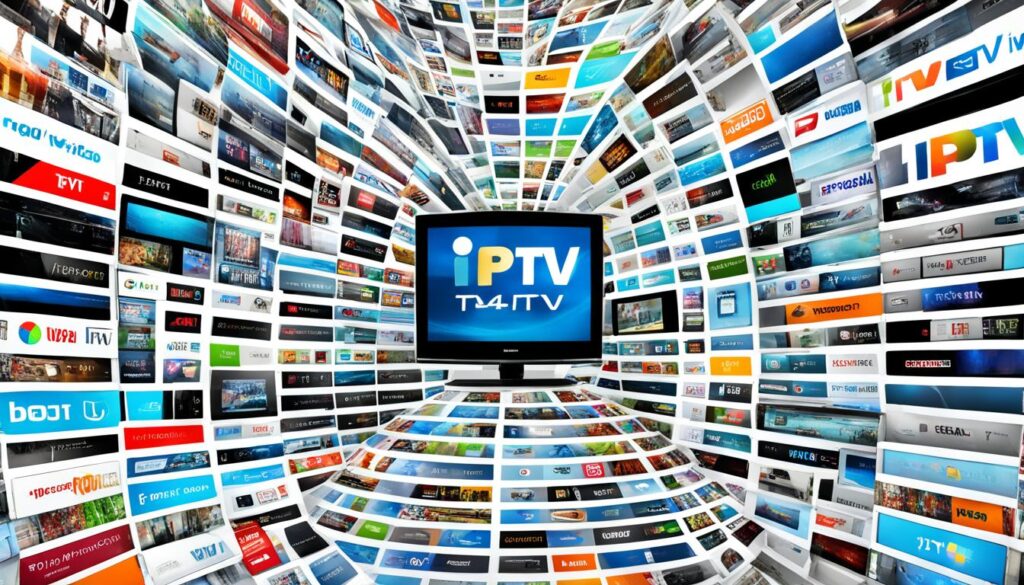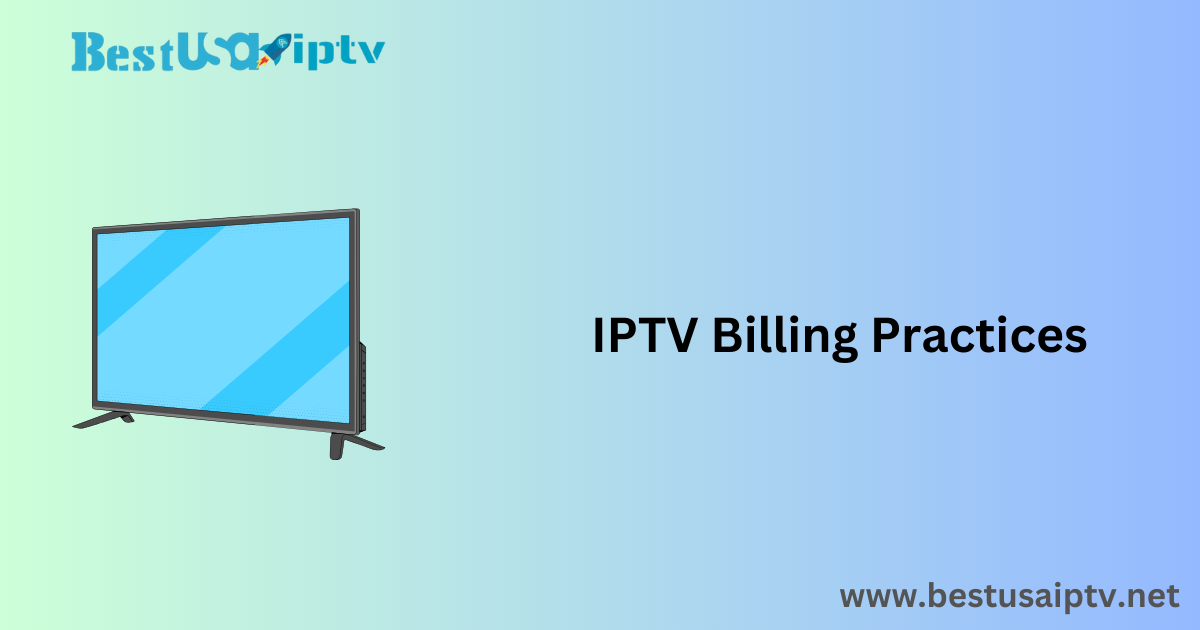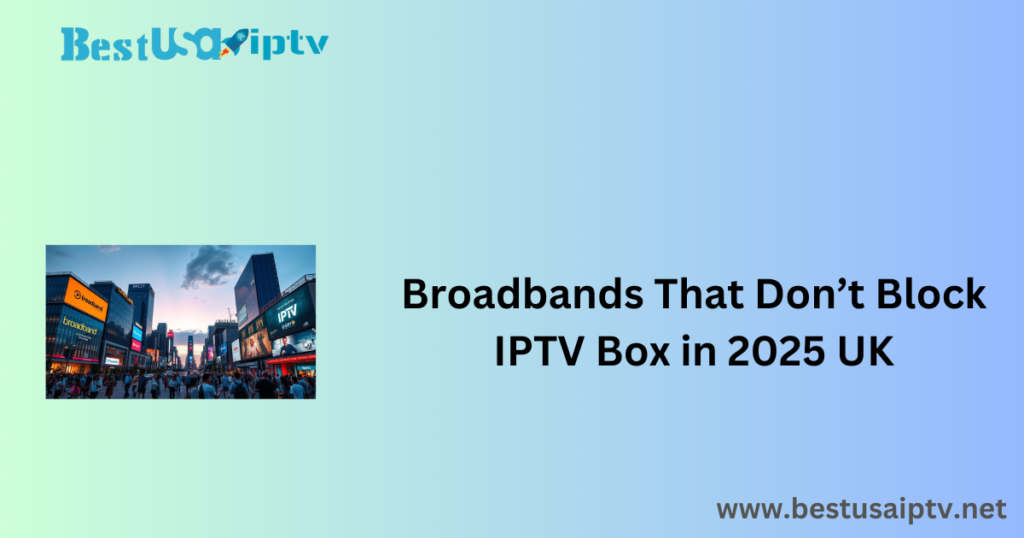As Canada’s IPTV services continue to reshape the television consumption landscape, understanding IPTV billing practices is becoming increasingly essential for users. At the forefront of this transformation is GetMAXTV, offering seamless access to an extensive range of programming through internet-based streaming. Efficient subscription management ensures users can fully enjoy the diverse array of channels available at their convenience.

IPTV billing models typically require consumers to commit to subscription plans or pay per channel, providing flexibility and variety beyond traditional television services. With advancements in payment methods—including credit cards, PayPal, and cryptocurrencies—users can select payment options that offer both convenience and security.
However, as IPTV services are inherently internet-dependent, users must remain vigilant against potential risks such as malware exposure. Selecting a reputable and secure IPTV provider is paramount to ensuring a seamless and secure viewing experience.
Key Takeaways
- Understanding IPTV billing practices facilitates efficient subscription and payment management.
- Canada’s IPTV services provide a broad range of content with flexible billing models.
- Choosing a secure and reputable IPTV provider is critical for payment security.
- Various payment methods enhance user convenience and security.
- Awareness of IPTV’s internet dependency and associated security risks is essential.
The Shift to IPTV Consumption and Its Impact on Billing

The evolution of television consumption in Canada has been marked by a significant transition toward digitalization. This shift not only influences content accessibility but also alters billing and payment structures. GetMAXTV exemplifies this transformation by leveraging internet connectivity to offer a more dynamic and personalized viewing experience.
Transition from Traditional TV to IPTV
Conventional television services once required consumers to adhere to rigid programming schedules and fixed channel selections. IPTV introduces a new era of flexibility, where users can tailor their viewing experience by selecting specific channels and content without relying on a physical cable connection.
The Digital Broadcasting Protocol of IPTV
IPTV operates on a digital broadcast protocol that enables a direct connection between users and a diverse range of global content. This technology allows seamless content streaming over the internet, eliminating geographical limitations and enhancing accessibility.
Convenience and Accessibility of IPTV Services
Modern consumers prioritize convenience, and IPTV meets this demand by enabling content access across multiple devices, including smartphones, tablets, and televisions. Intuitive IPTV payment systems ensure users can easily manage their subscriptions and access their preferred content.
Comparison of Content Availability: Conventional TV vs. IPTV

| Content Type | Conventional TV | IPTV |
|---|---|---|
| Sports Events | Limited by subscription packages | Global live-streaming availability |
| International Series | Restricted access to foreign content | Diverse global selection |
| Movies | Scheduled programming with repeats | On-demand access to a vast library |
| Kids’ Programming | Fixed timeslots with limited options | Extensive and flexible offerings |
| Documentaries | Available on specialized channels | Wide selection across niches |
As digital advancements continue, IPTV subscription and payment management will become even more streamlined and user-focused, enhancing the overall viewing experience.
Various IPTV Payment Models
With the ongoing transformation of television viewing, IPTV providers in Canada offer a range of flexible payment models to accommodate diverse user preferences. IPTV payment methods vary from traditional subscription plans to more dynamic pay-per-view and device rental options.
Common IPTV Billing Models
The most prevalent IPTV subscription model is a periodic plan—monthly or annual—providing users with uninterrupted access to numerous channels and services. This model simplifies budgeting and offers predictable costs. Additionally, some providers offer pay-per-channel or pay-per-view options, enabling greater control over IPTV expenses.
Integration of Modern Payment Gateways
Modern IPTV platforms incorporate sophisticated payment gateways, such as those provided by Offshore Gateways, to process transactions seamlessly. These gateways support various payment methods, including credit cards and e-wallets, ensuring accessibility for users regardless of their location.
Device Compatibility and Hardware Rental
IPTV providers offer flexibility in hardware use, allowing users to either rent set-top boxes or leverage their existing devices. This approach enhances cost-effectiveness and ensures a tailored IPTV experience.
Overview of IPTV Payment Models
| Payment Model | Description | Common Use Cases |
| Subscription (Monthly/Annual) | Fixed recurring payments | Comprehensive channel packages |
| Pay-per-Channel | Charges for individual channels | Exclusive or premium content |
| Pay-per-View | One-time payment per event | Special broadcasts or live events |
| Device Rental | Monthly fees for set-top boxes | Users without compatible devices |
| Bring Your Own Device (BYOD) | Use of existing devices | Cost-conscious consumers |
By incorporating diverse billing models and secure payment options, IPTV providers create an inclusive and accessible streaming environment tailored to user preferences.
Security Measures for IPTV Transactions

With the rise of IPTV services, ensuring transaction security has become a crucial priority. IPTV payment security involves robust measures to protect users’ financial data and prevent fraudulent activities.
The Role of Secure Payment Gateways
Secure payment gateways play a critical role in safeguarding IPTV transactions. These systems encrypt financial data, ensuring seamless and protected transactions while reducing the risk of cyber threats.
PCI Compliance and Data Protection
Adhering to Payment Card Industry Data Security Standards (PCI DSS) is mandatory for IPTV providers to protect customer payment information. Encryption and tokenization techniques enhance transaction security and build consumer trust.
Fraud Prevention in IPTV Billing
Fraud detection tools such as MaxMind and Sift help IPTV providers monitor transactions for suspicious activity. These real-time monitoring solutions detect and mitigate fraudulent behavior, strengthening IPTV billing systems.
By adopting secure payment gateways, ensuring compliance with security standards, and leveraging fraud prevention tools, IPTV providers maintain customer confidence and service integrity.
Choosing the Right IPTV Payment Provider in Canada
Selecting a reliable payment provider is crucial for ensuring a seamless and secure IPTV experience. Key factors include security measures, provider reputability, and the diversity of channels offered.
Key Considerations for IPTV Payment Providers
Security and convenience should be top priorities when evaluating an IPTV payment provider. Secure handling of financial transactions and user-friendly payment experiences enhance customer satisfaction.
Evaluating Provider Reputation and Reliability
Reputable providers such as PayPal offer established security features and consistent service reliability. A strong track record of secure transactions and customer support ensures peace of mind.
Assessing IPTV Content Offerings
The availability of diverse content is a critical factor in choosing an IPTV provider. Services with extensive channel options cater to broader audience preferences.
| Payment Provider | Security Features | Supported Channels |
| PayPal | Encryption, 24/7 monitoring | Extensive |
| Credit Cards | Fraud protection, alerts | Extensive |
| Direct Bank Transfers | Two-factor authentication | Limited |
| E-Wallets | Password protection, user verification | Moderate |
Advantages and Challenges of IPTV Billing in the Digital Era

As IPTV continues to grow, its billing models offer significant advantages while presenting challenges that require ongoing attention.
Advantages:
- Cost-Effectiveness – IPTV billing services offer affordable alternatives to traditional cable subscriptions.
- Subscription Flexibility – Users can tailor their subscriptions based on preferences.
- Device Compatibility – IPTV billing supports a range of devices, enhancing accessibility.
Challenges:
- Dependence on Internet Infrastructure – High-speed connectivity is essential for consistent service quality.
- Security Risks – Cyber threats and unauthorized streams pose challenges for providers and users.
As IPTV billing evolves, balancing cost-effectiveness, security, and user convenience remains crucial. GetMAXTV continues to set industry standards by integrating secure payment solutions and delivering an unparalleled viewing experience.
Conclusion
In today’s digital entertainment landscape, IPTV payment gateways are essential for secure and seamless content access. Subscribers benefit from reputable payment providers that prioritize transaction security. By selecting trusted IPTV services like GetMAXTV, users can confidently enjoy high-quality content while ensuring their financial information remains protected.




